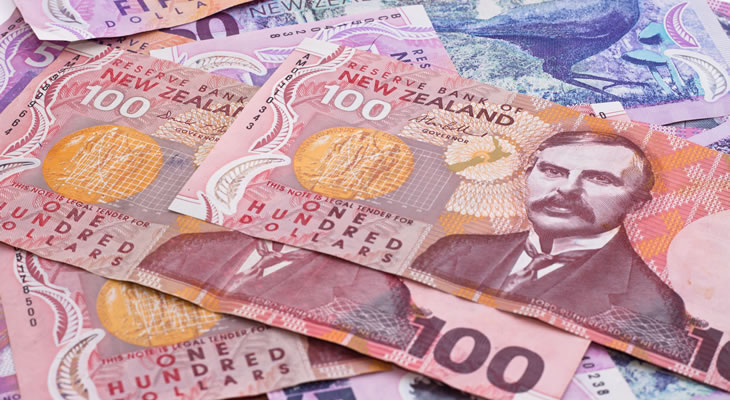The Pound Sterling to New Zealand Dollar (GBP/NZD) exchange rate continued to trade close to a 6-month low on Wednesday following the strong rally of the ‘Kiwi’ from Tuesday’s Fonterra Global Dairy Trade Auction.
Investors turned to the New Zealand currency after the latest Fonterra Global Dairy Trade Auction showed that the price of dairy goods increased by 3.6%. Prices have now risen for a second consecutive month and the rise added to December’s price increase of 2.4%.
After the auction, the ‘Kiwi’ surged strongly against the majority of its most traded peers. The currency reached its strongest level against the Australian Dollar since 1983 and rallied to multi-month highs against the Euro (EUR), Pound, and advanced against the US Dollar (USD).
The price rise increased optimism that a recovery is in store for New Zealand’s largest commodity export, which has suffered from a 48% decline in prices last year.
Chinese Data Supports ‘Kiwi’
Also aiding the ‘Kiwi’ was yesterdays better than forecast data out of China and found further support from reports that the Chinese government is planning to speed up the work on 7 trillion Yuan worth of infrastructure projects as it tries to kick-start flagging economic growth in the world’s second largest economy.
‘China’s news was enough to ignite the lift in the New Zealand Dollar followed by falling offshore yields and a positive Global Dairy Trade auction overnight,’ said ANZ Bank Agri economist Con Williams in a note to clients.
Pound Sterling to New Zealand Dollar (GBP/NZD) Exchange Rate Forecast
The New Zealand Dollar is likely to remain supported against the Pound and Australian Dollar over the coming weeks as data out of the UK continues to increase speculation that the Bank of England will continue to leave interest rates unchanged.
The ‘Aussie’ meanwhile is forecast to weaken further as the Australian economy shows signs of sliding towards a recession.
Against the Euro the ‘Kiwi’ could make further advances if eagerly anticipated Eurozone inflation and unemployment data highlights further weakness in the single currency bloc.
A weak inflation report will heighten expectations that the European Central Bank (ECB) will introduce more monetary easing measures.

